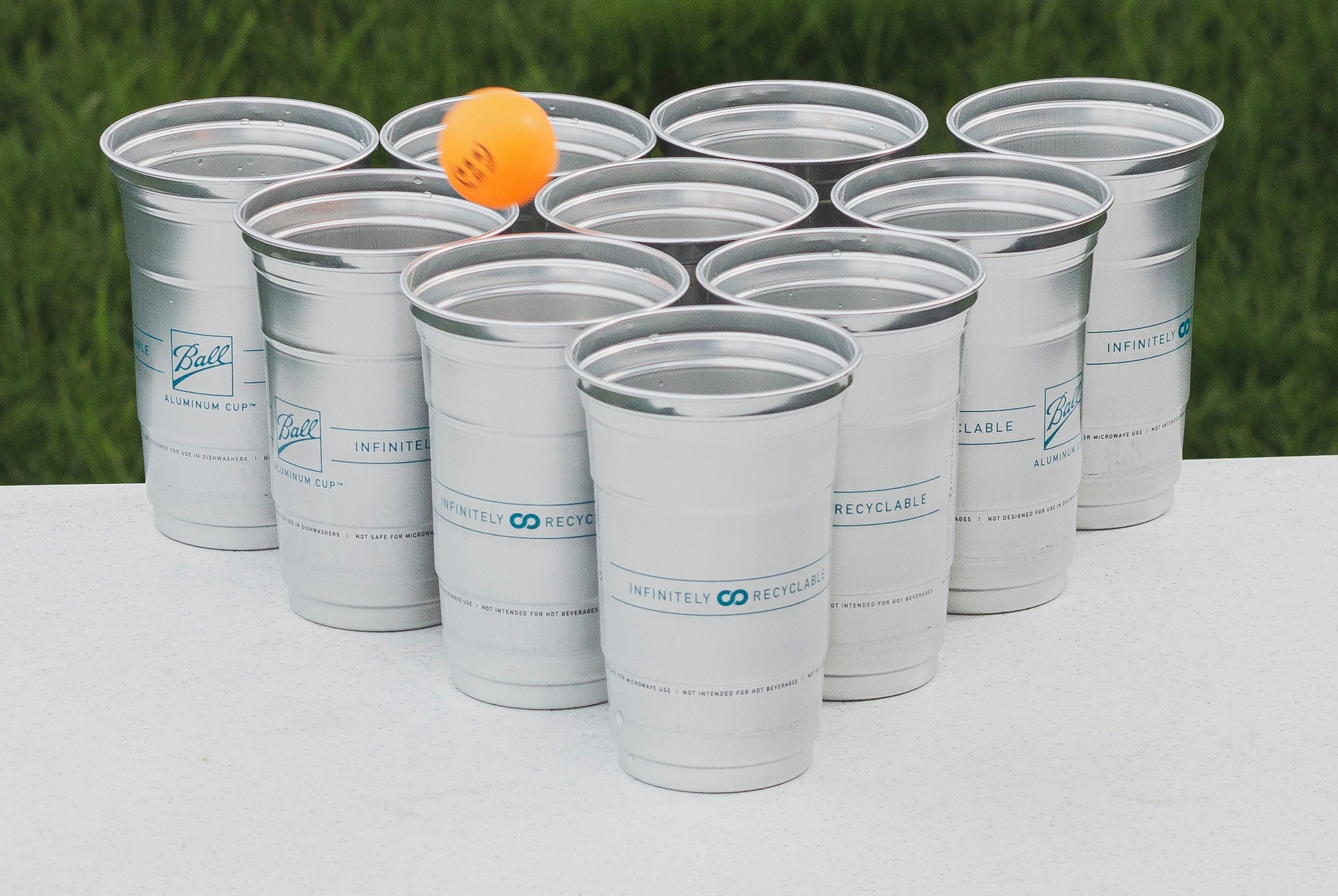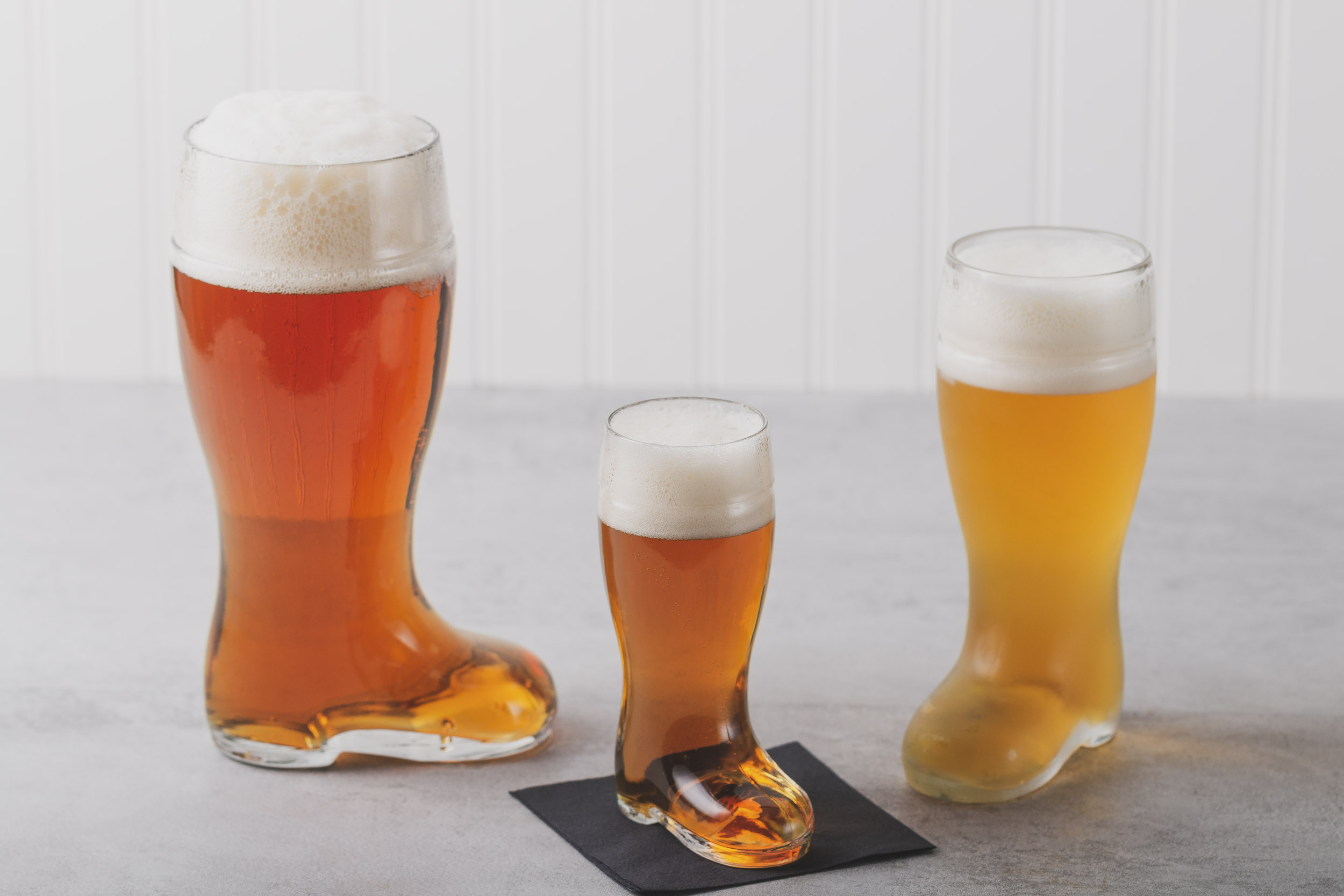
So, you're interested in aging beer? You've come to the right place.
A lot of cellaring virgins think that cellaring beer is exactly like cellaring wine. It's not.
Then again, it's important to remember that the practice of cellaring beer is still a fairly new thing, and most of the "guidelines" are entirely subjective. Trial and error is the best method, and we encourage you to experiment with beer styles, maturation times, and so on. The most important thing is to have fun. This is beer we're talking about.
Which Beers to Age
As a general rule, beers with at least an 8 percent ABV (alcohol by volume) age best.
Malty beers are typically prime candidates while hoppy pale ales and IPAs are best when fresh. Just a few months of sitting in your cellar may diminish their aroma and character. If you do want to experiment with aging hop heavy beers, be sure to keep them refrigerated - ideally below 50 degrees. Cold temperatures will help prevent hop spoilage.
Top Styles for Cellaring:
- Baltic Porter
- Barleywine
- Belgian Golden Strong
- Belgian Strong Dark Ale
- Belgian Tripel
- Berliner Weisse
- Doppelbock (above 8% ABV)
- Eisbock (above 8% ABV)
- Flanders Red Ale
- Gueuze
- Lambic (despite a low ABV)
- Old Ale
- Russian Imperial Stout
- Scotch Ale
- Wood-Aged Beer
Labels to Look For:
The beers that you're buying have key indicators right on the label. If you see any of the following terms, that beer is likely a prime candidate for aging:
Barrel-aged: These beers have been aged in wood, and they improve over time.
Reserve: "Reserve" beers are rare or "special release" brews, and most of the time they're crafted to improve with age.
Vertical: If you see the word "vertical" on a bottle label, throw it in the cellar. Okay, don't throw it, but place it down there, because most "vertical" beers can be aged. Many craft enthusiasts collect every special release from certain brewers in order to acquire a chronological (vertical) collection.
Bottle-conditioned: These beers contain active yeast, making them ideal for aging. Live yeast inside the bottle is an integral part of the maturation process.
Brettanomyces: This is a specific type of Belgian yeast, often added toward the end of the brewing process. In order to experience its full flavor, you'll want to give it at least a few months to mature.
Storage Conditions
They call it cellaring for a reason. Basements are often the most ideal storing location, however it's the environment that really counts.
A Few Tips to Keep in Mind:
Avoid sunlight at all costs. Heat and sunlight make beer skunky.
Why? Beer is photosensitive, and glass bottles let in UV rays. Exposure to heat and light causes isohumulones (the chemical compounds that make beer bitter) to decompose, while simultaneously causing compounds found in skunk's spray to form.
Keep humidity levels somewhat constant.
This is a big problem for a lot of people, due to seeping moisture in their basements. An ideal humidity level is anywhere between 50 - 70 percent. Dehumidifiers and humidifiers can help.
If Not the Cellar, Then Where?
A bedroom, closet, or any room with very few windows will work just fine. Remember, you're looking for a place with steady temperatures and a lack of sunlight. Wine fridges are also a great (yet slightly more expensive) option.
Note: If you choose any of these alternative options, be sure to buy a thermometer and a humidity meter. It wouldn't hurt to conduct a one-year experiment before you start accumulating beers either. Regularly monitor the temperature and humidity of your location throughout each of the seasons, and if both remain somewhat steady, you know you have a safe storage area.
A year may seem like too long to wait, and if you decide to go ahead without conducting this experiment, just keep in mind that fluctuating temperatures and humidity levels can render your collection undrinkable, so be sure to monitor as you go.
Temperature
Generally speaking, most beers should be stored between 50-55°F.
Higher temperatures lead to a shortened lifespan, and anything much lower will cause a chill haze (or cloudy) appearance.
Guidelines:
| Strong Beers Tripels Barleywines Dark Ales | Standard Ales Bitters Lambics Stouts | Lighter Beers Wheat Beers Milds Lagers |
| 55-60°F | 50-55°F | 45-50°F |
Higher ABV = Higher Temperature
Lower ABV = Lower Temperature
Storage Temperature = Serving Temperature (Note: If you have over-chilled, or over-heated a particular beer, it will still taste best at the temperature it was stored at)
Cellaring Techniques
Lying Down vs. Standing Up:
This is where beer and wine cellaring differ most. While the temperature, humidity, and storage conditions are often very similar, wine is best aged lying down while beer must stand upright. If a bottle is laid on its side, the yeast is unable to settle at the bottom and the beer is more prone to oxidation. Long exposure to the cork can also impart cork flavors in your beer.
Bookkeeping:
It is important to mark your collection. You can always place blank stickers on your beers or directly below them on your shelving unit. Another option is to label blank tags and tie them around the bottle necks. Whichever method you choose, it is imperative that you somehow mark when the beer was bought, so you know how long it has been aging.
Equipment
Dehumidifier or Humidifier:
The ideal humidity level for your cellar is anywhere between 50-70 percent, so the existing moisture level in your basement will dictate the kind of equipment you'll need. To figure out where you're at, buy a cheap humidity meter and proceed accordingly.
If there is not enough humidity, the corks in your bottles will dry out. If there's too much humidity and your crown caps are loose, black mold will form inside your beer.
Air Purifier:
Clean air helps to eliminate the risk of black mold. This is especially pertinent if you're unable to keep your humidity levels completely steady.
Thermometer:
It is important to maintain a steady temperature no matter where you choose to store your beer. Check out specific temperature guidelines here.
Humidity Meter:
As with temperature, it is important to monitor the humidity level. Again, an ideal range for humidity is between 50 and 70 percent.
Shelving:
It's your cellar, go with what feels right. Metal, wood, paper mache. No, not really paper mache - that probably wouldn't hold up.
Beer:
The final and most important thing you'll need for your cellar is beer. Glorious beer.
How Long to Age
So how long do you leave your beer(s) in the cellar? Well, that all depends.
Typically, the aging range for most beers is between two and ten years. While we realize that's rather broad, there's no exact formula and every beer is different.
Some max out at three years, others at eight, and there are a few beers that taste best after 30 years. The only way to know for sure is to buy at least a few of each beer and taste test - roughly every six months to a year - while taking notes along the way.
General Guidelines:
Hoppy Beers (Pale Ales, IPAs, etc) 2-6 Months Note: Store these beers at a cooler temperature (between 45-50ºF)
High-Gravity Beers (Barleywines, Imperial Stouts, and Old Ales) 5-10 Years
Ask Around:
Not sure when a particular beer will reach its prime? Consider consulting an online forum. BeerAdvocate.com and RateBeer.com are great places to connect with other beer enthusiasts.
If you're thinking about cracking open your last bottle of that imperial stout you've been aging for 8 years, you can ask the people on the forum if anyone has aged it for 9 years and how it tasted?
Like you, these people have been experimenting and they just might have the answer.
We hope this guide has given you a better understanding of how to cellar your beer. Once those perfectly aged bottles are ready for consumption, check out our Tasting Guide and experience firsthand what a little bit of time can do.
Tags:
Kegworks
Kegworks has been transforming hospitality spaces since 1998 with expertly crafted architectural metalwork and professional draft beer equipment, helping designers, architects, and bar professionals bring their visions to life.



Leave a Comment